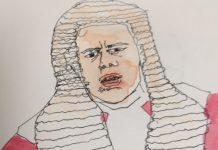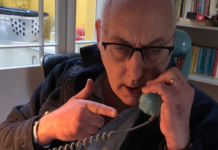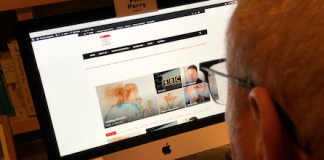- Crime pays - 1st July 2025
- Disabling protests - 30th June 2025
- A good storybook - 30th June 2025
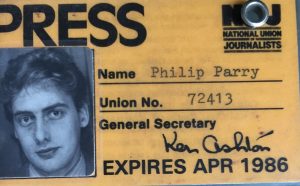 After 23 years with BBC Cymru Wales (BBC CW), and a career stretching back 38 years, here our Editor Phil Parry looks at the role of journalism, as well as its changing face today.
After 23 years with BBC Cymru Wales (BBC CW), and a career stretching back 38 years, here our Editor Phil Parry looks at the role of journalism, as well as its changing face today.
In the past he has described how he was assisted in breaking into the South Wales Echo office car when he was a cub reporter, recalled his early career as a journalist, the importance of experience in the job, and made clear that the‘calls’ to emergency services as well as court cases are central to any media operation.
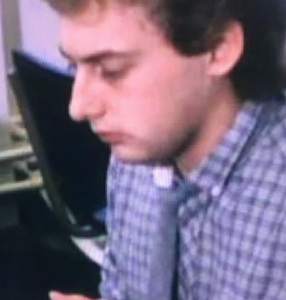
He has also explored how poorly paid most journalism is when trainee reporters had to live in squalid flats, the vital role of expenses, and about one of his most important stories on the now-scrapped 53 year-old BBC CW TV Current Affairs series, Week In Week Out (WIWO), which won an award even after it was axed, long after his career really took off.
Phil has explained too how crucial it is actually to speak to people, the virtue of speed as well as accuracy, why knowledge of ‘history’ is vital, how certain material was removed from TV Current Affairs programmes when secret cameras had to be used, and some of those he has interviewed.

He has disclosed as well why investigative journalism is needed now more than ever although others have different opinions, how the pandemic played havoc with media schedules, and the importance of the hugely lower average age of some political leaders compared with when he started reporting.
It seems to me that following a 38 year career in journalism, I may be justified in surveying the landscape now – but I am afraid it is one that fills me with sadness and alarm.
I think it is reasonable to assume that journalists (indeed anyone) should search for truth, and while this sounds ridiculously pretentious, that makes it no less the case.
The finality of this search is probably unattainable, but it should still be conducted because it is vital, and it makes the ‘dumbing’ down of journalism today, as well as the use of ‘celebrities’ all the more abhorrent.
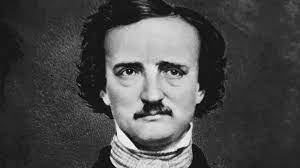
There are such things as FACTS. Events DID happen, and while we might never get to the bottom of those events, even LOOKING into them is important.
In the mid-19th century journalists (in America particularly) still invented stories to boost their readership.

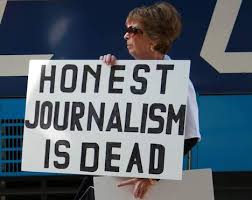 In 1844, for example, the New York Sun published a fake story about a transatlantic hot-air balloon journey, written by Edgar Allan Poe.
In 1844, for example, the New York Sun published a fake story about a transatlantic hot-air balloon journey, written by Edgar Allan Poe.
The 20th century brought codes of ethics, professional bodies, and unwritten rules that were passed on through institutions.
In journalism, these rules now include seeking multiple sources, preferring information that is ON the record (which is quite different to providing details from anonymous sources), questioning received wisdom, affording subjects a right of reply, and correcting mistakes.
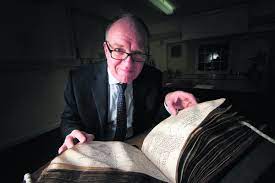
The author Richard Ovenden encapsulated the importance of these factors in his best-selling book entitled ‘Burning The Books – A History Of Knowledge Under Attack’ when he wrote: “Defending the truth against the rise of ‘alternative facts’ means capturing these truths, and the statements that deny them, so that we have reference points, that societies can trust and rely on”.
Karl Popper’s philosophy of science gave the constitution of knowledge an epistemological basis. The truth of a questionable event might never be gained, but by excluding enough falsehoods it IS possible to get close to it. People must be held accountable for mistakes.
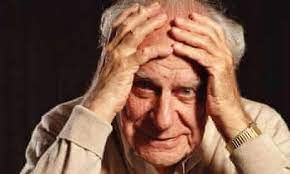
This system, though, is under threat as never before, and there are a number of sources for it:
News as ‘entertainment’, such as Stacey Dooley provides, is the main one. ‘Celebrity’ ‘journalism’, seems to rule the roost!
Ms Dooley was preparing a BBC Three documentary on the pandemic and, admitting that she was “desperate”, stated on Instagram: “Hi gang, hello, I’m sure you’re sick of these videos that everyone is posting online. I’m working from home for obvious reasons, I’m making a documentary for BBC Three about coronavirus.”
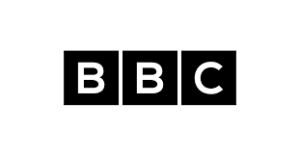

It seems the BBC may have forgotten that officials had to apologise and edit out Ms Dooley’s inaccurate commentary in a Panorama programme which claimed to portray the truth about Islamic State’s (IS) treatment of women.
In the past her programmes have been accused of being “poverty porn” and in one UK newspaper they were called “patronising and condescending to the people they’re trying to help”.
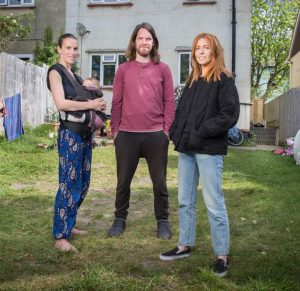
One of her subjects in ‘Stacey Dooley Sleeps Over’, Adele Allen, said: “In the whole 72 hours she was here I did three early morning dog walks at 6am with the baby and she didn’t manage to make it out to one. She couldn’t get up with me – so there’s the lazy one”. Ms Allen’s partner claimed also that Ms Dooley didn’t join in enough with their family life in Brighton on the show. He said: “She’s lovely but there’s not a lot of depth to her. There’s a fantastic moment (in the programme) where she is with me in the allotment and I say: ‘Come on then Stacey, what herb is this?’ and I tell her it begins with the letter O and she says: ‘Olive oil’”.

Even before this transmission, though, Ms Dooley was in hot water. The programme which included a glaring error, was called ‘Stacey Meets the IS Brides’, and her voice-over had said: “We saw women raising their index finger in an IS salute”.
But this was completely wrong and several viewers who had seen the trailer about it, criticised her comment on Twitter, explaining that Muslims often use this gesture while praying.
One said a complaint had been made to the broadcast regulator OFCOM. BBC journalist Anisa Subedar tweeted: “Raising the finger is NOT an IS salute. Does #StaceyDooley know us Muslims raise it everytime we pray (that’s 5 times a day) to remind us of the oneness of God?” Writer Steve Rose said: “Skip to 1:35 to see Stacey Dooley perpetuate this ignorant falsehood, referring to the raised finger of Tawhid as an ‘IS salute’”.
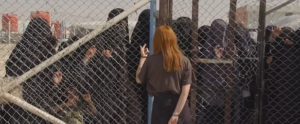
The BBC finally admitted: “We wrongly described a gesture made by women filmed in a Kurdish controlled detention camp in Northern Syria as an ‘IS salute’. While IS have attempted to adopt this for their own propaganda purposes, for accuracy we should have been clear that many people of Muslim faith use this gesture to signify the oneness of Allah. We apologise for this error and have removed this description from the footage”.
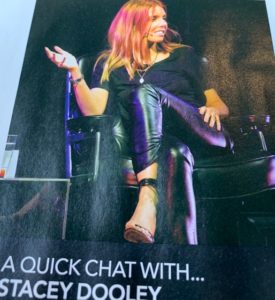
The BBC’s error committed by Ms Dooley, was featured in most of the UK newspapers. and after a deluge of complaints executives announced that the episode was to be re-edited before its broadcast.
Meanwhile before the lockdown, she had explained to an audience at Cardiff’s St David’s Hall, what it was like being a journalist. The publicity put out by the venue declared: “Join her (Ms Dooley) for what promises to be a thought-provoking, inspiring and informative evening. With a chance to try your own hand at journalism and ask Stacey the questions, this is an opportunity not to be missed“.


The St David’s Hall material before her appearance proudly proclaimed as well: “… Stacey talks about her remarkable career so far, where she’s headed next, and how news and investigative journalism are evolving in such a highly polarised global political climate and a constantly shifting media landscape”.
Yet Ms Dooley is only the most recent phenomenon of something which has been around for years. There are others:
- Talk radio and cable-news outrage is a huge factor today, although it was prevalent long before social media. However the birth of Twitter and Facebook seems to have made the problem worse.
- A threat exists from the populist right, which appeared to reach its apogee in 2016. One reason populism is popular is that it makes everything seem simple and certain. The sabotage from the right has been deliberate. When Donald Trump was president-elect, Lesley Stahl of CBS asked why he spent so much time attacking the media. “You know why I do it?” Ms Stahl later recalled him saying. “I do it to discredit you all and demean you all, so when you write negative stories about me no one will believe you”. This is a terrible thing to say from someone who went on to become President of the most powerful nation on earth.
-
There are threats, too, from the doctrinaire left, in the form of cancelling or censoring speakers. Liberal knowledge-makers are more worried about this now, because to some, the right-wing peril of Trumpism seems to be receding. But it is even more alarming than they realise. For example – Yale students protested about a professor’s reluctance to police Halloween costumes, and others at Smith College demonstrated against Christine Lagarde giving a speech. It seems those students were suspicious of the liberty on which knowledge-gaining depends, and presumably may also question journalists who seek the truth.

Yet we need to keep searching for that truth, and journalists (proper ones) play a central role.
It is a shame that others apparently do not share this view…
Tomorrow – why Phil’s journalism is followed by others months after the event.
 The memories of his remarkable decades long award-winning career (including looking into the truth or otherwise of events) as he was gripped by the rare disabling condition Hereditary Spastic Paraplegia (HSP), have been released in a major book ‘A GOOD STORY’. Order the book now!
The memories of his remarkable decades long award-winning career (including looking into the truth or otherwise of events) as he was gripped by the rare disabling condition Hereditary Spastic Paraplegia (HSP), have been released in a major book ‘A GOOD STORY’. Order the book now!
Regrettably publication of another book, however, was refused, because it was to have included names.



